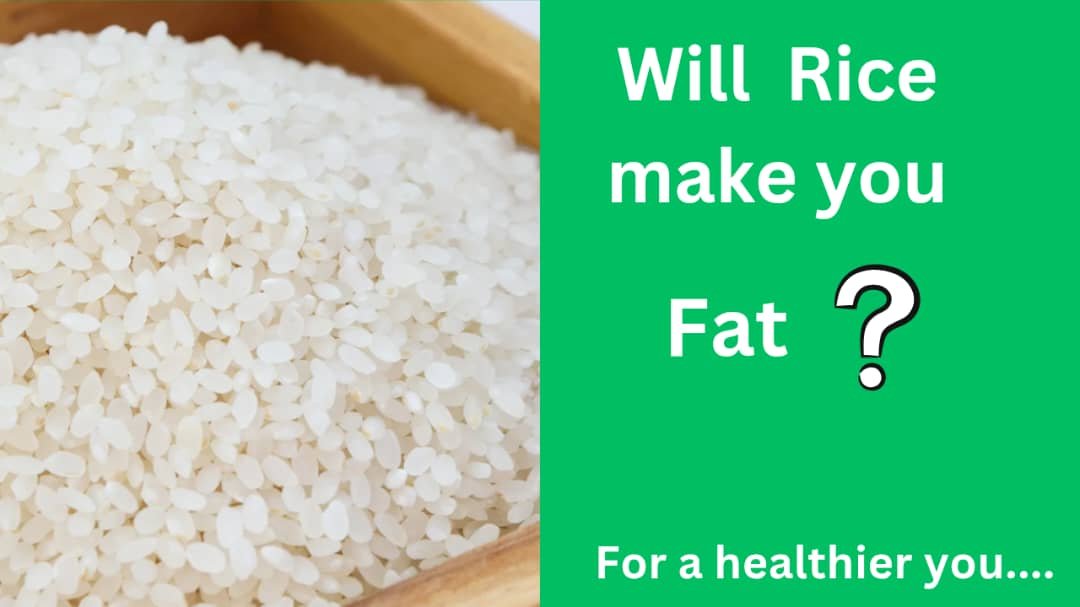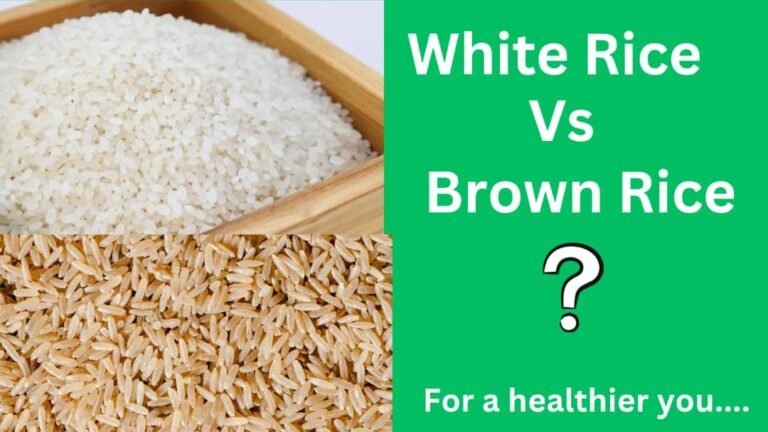When it comes to weight loss and healthy eating, white rice often gets a bad reputation.
Many people believe that white rice is a “fattening” food that should be avoided, especially when trying to lose weight.
However, the truth is, that why white rice won’t make you fat is based on understanding how it fits into your overall diet and lifestyle.
In this article, we’ll discuss the reasons why white rice can be part of a healthy, balanced diet without contributing to weight gain.
Understanding the Nutritional Content of White Rice
White rice is primarily composed of carbohydrates, which is the body’s main energy source. The misconception that white rice leads to weight gain stems from its high carbohydrate content.
However, carbs in themselves are not the enemy. Your body needs carbohydrates to fuel daily activities, particularly physical exercise. The issue isn’t the rice itself, but rather how much and what else is consumed with it.
Unlike brown rice, which retains its bran and germ, white rice has been milled and processed, removing some of its fiber content.
RELATED: Fit To Fat To Fit Lifetime
This makes it quicker to digest and results in a faster spike in blood sugar. However, this doesn’t automatically mean it will lead to weight gain.
In moderation, white rice can be part of a balanced diet that supports weight management. The key is portion control and pairing white rice with nutrient-dense foods, like vegetables and lean proteins.
Glycemic Index and Its Impact on Weight
According to Kaur and Ranawana, J Henry, one of the reasons people avoid white rice is because of its relatively high glycemic index (GI). The GI measures how quickly a food raises blood sugar levels.
High-GI foods like white rice can lead to a quick energy spike, but this doesn’t necessarily translate to weight gain.
RELATED: The 5 Best Diets For Burning Fat
When consumed as part of a balanced meal, why white rice won’t make you fat because it can be paired with foods that help balance the blood sugar response, such as healthy fats and proteins.
Additionally, the GI of white rice can be reduced by combining it with other ingredients.
For example, adding fiber-rich vegetables or lean proteins can slow the digestion process and help keep blood sugar levels stable.
This means the body will use the carbohydrates in white rice for energy rather than storing them as fat.
Portion Control Is Key
Another factor in understanding why white rice won’t make you fat is portion size. Like any food, when white rice is consumed in large amounts, it can contribute to excess calorie intake. However, when eaten in appropriate portions, white rice can be part of a healthy, calorie-controlled diet.
RELATED: Diet Mistakes To Avoid
A typical serving of cooked white rice is about 1/2 cup, and when combined with other healthy foods, it can be filling without overloading on calories.
Some studies suggest that rice can be a satisfying part of a meal, helping to prevent overeating.
The psychological satisfaction of eating rice can reduce cravings for other high-calorie foods, potentially preventing overeating later in the day.
The Role of Lifestyle and Activity Levels
Another important aspect to consider when questioning why white rice won’t make you fat is your overall lifestyle.
RELATED: What Are The Baby’s Nutritional Needs?
Active people who exercise regularly need more carbohydrates to fuel their activity. For these people, white rice can be a great source of quick energy, especially after intense physical activity.
It helps replenish glycogen stores in muscles, making it an excellent recovery food.
For sedentary people, it’s still possible to include white rice in a healthy diet, but it’s important to balance it with other nutrient-rich foods and exercise.
According to a Journal of Qualitative, a sedentary lifestyle combined with excessive consumption of high-calorie foods could lead to weight gain, but this is not specific to white rice, it’s a result of an overall imbalance of calories consumed and burned.
Healthy Ways to Incorporate White Rice into Your Diet
RELATED: What Nutrients Are Important For Older Adults?
So, if you’re wondering why white rice won’t make you fat, it’s all about moderation, balance, and pairing it with other healthy foods. Here are a few tips for incorporating white rice into your meals:
- Pair it with Lean Proteins: Add chicken, fish, or tofu for a balanced meal that provides protein and fiber, helping you feel full longer.
- Add Vegetables: Bulk up your meal with colorful vegetables to increase fiber intake, which helps manage blood sugar levels and promotes satiety.
- Control Your Portions: Be mindful of your serving sizes and avoid consuming large portions of rice at one time.
- Exercise Regularly: Pair your rice meals with regular physical activity to burn calories and prevent weight gain.
RELATED: What Diet Should I Eat To Reduce Belly Fat?
Conclusion
Ultimately, the reason why white rice won’t make you fat is simple: it’s all about how you incorporate it into your diet.
Like any food, when consumed in moderation and combined with healthy ingredients, white rice can be part of a balanced and nutritious meal.
The key is to focus on portion control, food pairings, and an overall healthy lifestyle.
RELATED: What Is The Best Keto Diet Plan For Weight Loss?
So, next time you consider cutting out white rice from your meals, remember that it’s not the rice itself but how you enjoy it that makes the difference.






